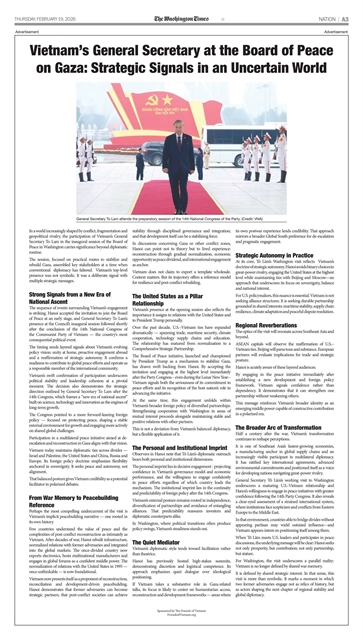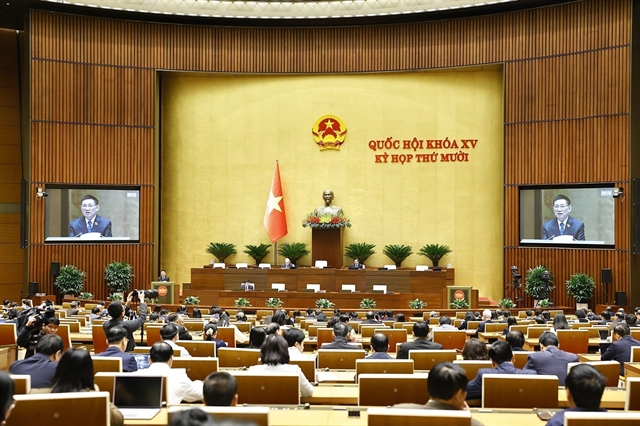 Politics & Law
Politics & Law

 |
| Deputy Prime Minister Hồ Đức Phớc presented the draft resolution on special mechanisms and policies for international integration in front of the National Assembly on November 19. — VNA/VNS Photo |
HÀ NỘI — The development and adoption of a National Assembly resolution detailing special mechanisms and policies for international integration is an urgent requirement to ensure that foreign affairs work keeps pace with the needs of the new era, as set out in Politburo Resolution No. 59-NQ/TW.
Deputy Prime Minister Hồ Đức Phớc made the announcement on Wednesday morning while presenting the Government’s summary proposal for the draft resolution during the 10th session of the 15th National Assembly.
The resolution aims to address bottlenecks in external relations and international integration, strengthen partnerships, enhance the role of localities and businesses, and ensure adequate resources.
The draft comprises eight chapters with 29 articles and two annexes, centred on three key policy groups.
The first policy is to strengthen and deepen relations with partners, promote and enhance multilateral diplomacy, proactively contribute intelligence and resources, and increase the country's soft power.
Measures include allowing the Government to issue resolutions to resolve legal obstacles in strategic cooperation projects; permitting selected localities to establish overseas representative offices in some key areas; and authorising deployment of Vietnamese personnel to reconstruction operations in conflict or disaster areas.
The second policy group seeks to strengthen the central role of enterprises in international integration, including allowing them to establish international integration development funds and offering support mechanisms for Vietnamese businesses abroad.
The third centres on training and expanding the workforce engaged in foreign affairs at central and local levels.
Delivering the appraisal report, Lê Tấn Tới, Chair of the National Assembly’s Committee for National Defence, Security and External Affairs, affirmed the necessity of the resolution and said the dossier meets the requirements for the National Assembly to deliberate and vote on during this session.
However, the committee requested clearer identification of the “bottlenecks” encountered in past implementation, including more detailed evidence and data.
It also called for a specific timeframe for the resolution’s validity, along with a plan to review and revise related legal documents upon implementation. All guiding documents should come into effect simultaneously with the resolution on January 1, 2026. — VNS